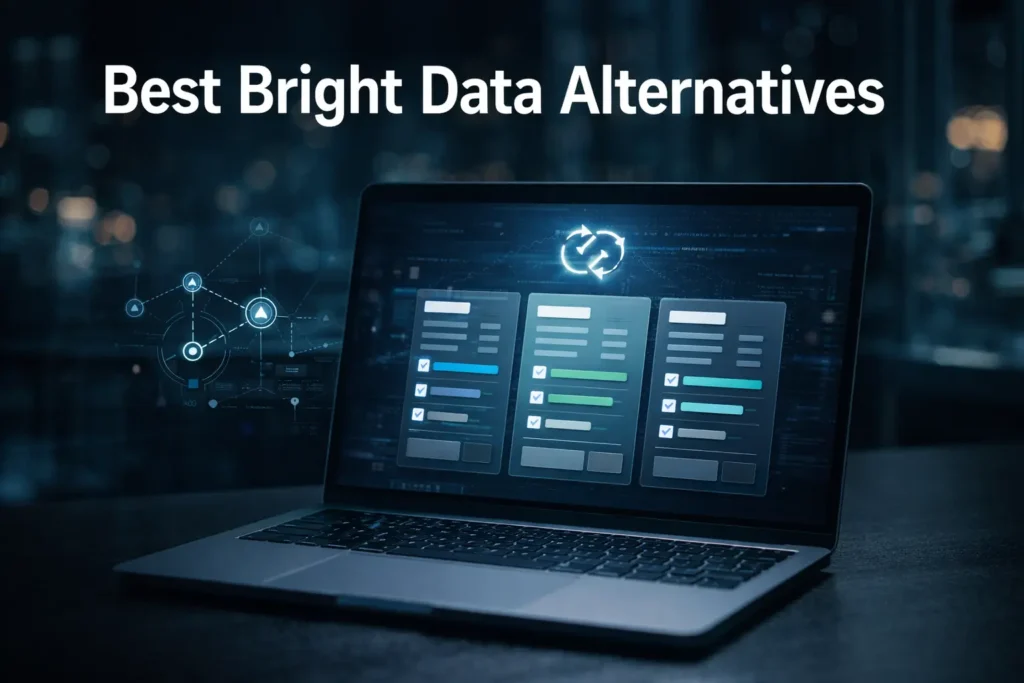You will likely see your favorite proxy provider offering residential proxies at a higher price compared to their usual corporate stooges, datacenter proxies. But do you really know which one is best for you? In this article, we will be dealing with the similarities and differences between datacenter and residential proxies.
I would largely argue that if you are buying proxies, then you already know what they are. But, for the sake of the precious internet newbie who might have chanced upon this article from a Google search, let’s talk a little bit about what proxies are.
A proxy server is a system that allows you to fetch data from the internet without telling the internet exactly who is requesting the information. It acts as a mask to cover your true identity, making your internet dealings secure, private, and more efficient.
Now that we have that out of the way, let’s get into the topic of the day.
Datacenter Proxies
Table of Contents
ToggleFirst, datacenter proxies are the most common and relatively cheaper type of proxies you can find online to buy today. They provide private IP authentication to users with anonymity and security guaranteed for a price, as opposed to the services of an Internet Service Provider (ISP).
Let’s cover how a data center proxy works. When a user sends a request, it passes through a data center that assigns a new IP address before the request is sent to the website. Hence, the alternate IP address protects the identity of the user behind the request.
Pros and Cons Of Datacenter Proxies
Now that we know what datacenter proxies are and how they work, let’s look at some benefits they offer to users, a couple of use cases where they may come in handy, and a few of their drawbacks.
Pro: Anonymity
Datacenter proxies guarantee users a high degree of anonymity. Their IP addresses are generated in data centers with no connection to actual locations. This makes it difficult for websites to track the location of the user.
Most providers offer rotating datacenter proxies, which allow users to switch between a batch of proxies with each request.
Pro: Speed
Residential proxies significantly outperform data center proxies in terms of speed. This makes them the go-to for applications that require fast internet access, like online gaming. With high-performance servers, some providers boast speeds over 1 GB/s.
Pro: Relatively Cheaper
One of the main reasons why data center proxies are popular has to do with the price tag. They are usually cheaper when compared to other types, like mobile and residential proxies. Some providers offer IPs for just a dollar every month. When doing a project that needs tons of data, unlimited datacenter proxies are the cheapest option on the market.
Datacenter proxies may sound like the god of proxies, offering everything you would need from a proxy server. But that is not always the case, as they have serious drawbacks.
Con: Restrictions and Banning
Due to the negative associations of proxy use, complex websites like Facebook, Google, and Instagram spend millions of dollars to develop systems to detect and ban proxies from accessing their content.
As anticipated, data center proxies are the initial targets for removal. Websites, able to identify the IP from a data center, will ban it regardless of the nature of the request.
Con: Limited Geolocation Targeting
Another con of using datacenter proxies is the limited geotargeting features they offer. This is because data center proxy providers cannot provide IPs in your chosen location without having a physical server present there.
Residential Proxies
Alternatively, residential proxies are a type of proxy that allows users to use real residential IPs of devices that have access to the internet like computers, mobile phones, printers, etc.
Internet service providers assign residential proxy IPs as privately owned IPs. Most websites see them as legitimate requests from real users, so they are nearly impossible to detect. This mitigates the need for excessive scrutiny.
Proxy providers usually lease residential IPs from ISPs or gather them through peer-to-peer (P2P) programs, where the provider pays a user to let them route requests through their devices. This means that requests from the proxy user are sent to the internet under the cover of the residential proxy, thereby hiding the true IP address of the proxy user.
Pros and Cons Of Residential Proxies
Now, let’s go over the pros and cons of residential proxies, as well as a few residential proxy use cases.
Pro: Geotargeting
Since residential proxies rely on physical devices, users can get their hands on IP addresses from specific locations. These geo-targeted proxies come in handy when you want to access content that may not be legally available in a particular region.
Pro: Reliable
Because residential proxies are real residential IP addresses, they are much more reliable. Because website security systems consider them real users, the chances of them getting flagged and banned are practically zero. This is particularly important for data-sensitive projects like web scraping.
Pro: Anonymity
Residential proxies ensure that your identity is kept behind cover at all times. This is due to the fact that all of your requests use P2P programs or residential IP addresses that are ISP-secured to conceal your true location.
Con: Higher Price
The biggest drawback you are going to face with residential proxies has to do with the cost. However, you can be confident that your proxies will deliver the necessary performance to complete your tasks.
Conclusion
As you can see, there are several similarities and differences between datacenter and residential proxies. Both are great for hiding your digital fingerprint, though there are a mix of differences.
The best type of proxy largely depends on the needs of the user. For instance, if you want to see how your ads appear in other countries, then residential proxies will be the right choice. However, bear in mind that you would have to pay a bit more than you would for a data center proxy. On the other hand, users who require high-speed connections for things like online gaming can opt for data center proxies instead.
If you haven’t yet decided between datacenter and residential proxies, here are the most common residential proxies use cases.
How useful was this post?
Click on a star to rate it!
Average rating 0 / 5. Vote count: 0
No votes so far! Be the first to rate this post.
Tell Us More!
Let us improve this post!
Tell us how we can improve this post?


